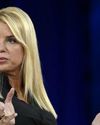
Losing UNESCO's designation, though, only fueled the city's commitment to preserving its heritage while embracing growth.
The Royal Albert Dock is one of Liverpool's most iconic landmarks. When it first opened in 1846, it revolutionized global trade with its innovative design. Constructed entirely from cast iron, stone, and brick, the dock became the world's first noncombustible warehouse system. It was equipped with the world's first hydraulic cranes, halving the time to load and unload ships. The dock quickly dominated world trade, handling valuable cargo such as cotton, silk, brandy, and tobacco.
But just 50 years later, advances in shipping technology rendered the docks obsolete. After serving as a base for the British Atlantic Fleet and suffering damage during World War II, the dock sat neglected for decades-until its revitalization. In 1982, a regeneration deal transformed the dock into a vibrant hub of commercial, leisure, and residential activity. The site was restored, warehouses were repurposed into shops, restaurants, and museums, and the waterfront was reborn as a cornerstone of Liverpool's identity.
Liverpool received UNESCO World Heritage status in 2004. The designation recognized the city's historical significance in world ports and architecture, placing it in the same category as the Great Wall of China and the Taj Mahal. Liverpool's heritage site was divided into six areas, with the waterfront-home to the Royal Albert Dock-holding particular importance. In total, 380 features and 138 hectares (about 340 acres) were protected under this status.
This story is from the {{IssueName}} edition of {{MagazineName}}.
Start your 7-day Magzter GOLD free trial to access thousands of curated premium stories, and 9,000+ magazines and newspapers.
Already a subscriber ? Sign In
This story is from the {{IssueName}} edition of {{MagazineName}}.
Start your 7-day Magzter GOLD free trial to access thousands of curated premium stories, and 9,000+ magazines and newspapers.
Already a subscriber? Sign In

Google Is Big. Is That Bad?
NO ONE HAS A MONOPOLY ON THE DEFINITION OF A MONOPOLY.

CAN ULTIMATE FRISBEE HEAL THE MIDDLE EAST?
FOR TEENAGERS IN IRAQI KURDISTAN AND ELSEWHERE, IT'S MORE THAN JUST A GAME.

Florida Drug Deaths Surged on Pam Bondi's Watch
WHEN PRESIDENT DONALD Trump announced his nomination of Pam Bondi as attorney general, he extolled her \"incredible job\" in \"work[ing] to stop the trafficking of deadly drugs and reduc[ing] the tragedy of Fentanyl Overdose Deaths.\"

The Strange Case of The Immortality Key
THOUGH THE SCIENCE journalist Michael Pollan called the book \"groundbreaking,\" Brian Muraresku's The Immortality Key is largely a rehash of others' work shaped into a Da Vinci Codestyle thriller.

LOVE, MONEY, AND SURROGACY
EVELYN AND WILL Clark met after college through mutual friends.

Trump vs. California: Round 2
CALIFORNIA WAS ONE of President Donald Trump's largest foes during his first term; the state sued his administration over 120 times.

The Future of AI in the Trump Administration
PRESIDENT DONALD TRUMP'S deregulatory impulses could be a boon to the AI industry, but his hostility to free trade threatens to undermine its progress. Policies from the first Trump administration and caustic campaign rhetoric caution against unqualified optimism.

Will We Get to the Bottom of COVID-19's Origin?
WILL THE INCOMING Trump administration and Republican Congress get to the bottom of how the COVID-19 pandemic began? There's every indication that they'll at least try.

you can't Evict Polly
HOW THE FAIR HOUSING ACT ENABLED THE RISE OF EMOTIONAL SUPPORT PARROTS, FROGS, AND EMUS

Gay Penguins Face the Ban Hammer
ONE FLORIDA SCHOOL district is facing a legal battle over its decision to ban a book about gay penguins.